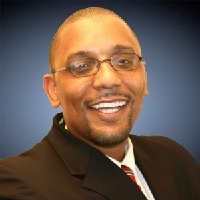 Oak Park Felony Lawyers, Michigan
Oak Park Felony Lawyers, Michigan
Sponsored Law Firm
-
 x
x

Click For More Info:
-
Dulaney Gibson Law and Advocacy
2447 Emerson Ave Bloomfield Hills, MI 48302» view mapCriminal Defense Law We Have Your Back
If two heads are better than one, imagine the team WE would make. Simply put...we want your head in the game, too.
800-879-0801
Sponsored Lawyers
1-5 of 5 matches
Felony, DUI-DWI, Misdemeanor, Traffic, Bankruptcy
At the law offices of Quinn and associates our motto is knowledge, excellence, and determination. The professionals at The Law Offices of Quinn & Associates, PLLC cater to the needs of our clients providing each client personalized, individualized attention. The Firm prides itself on savvy, tenacious and fearless advocacy. Our clients can count on us to go the distance.
(more)


 Cortney Gibson Bloomfield Hills, MI
Cortney Gibson Bloomfield Hills, MI Practice AreasExpertise
Practice AreasExpertise

